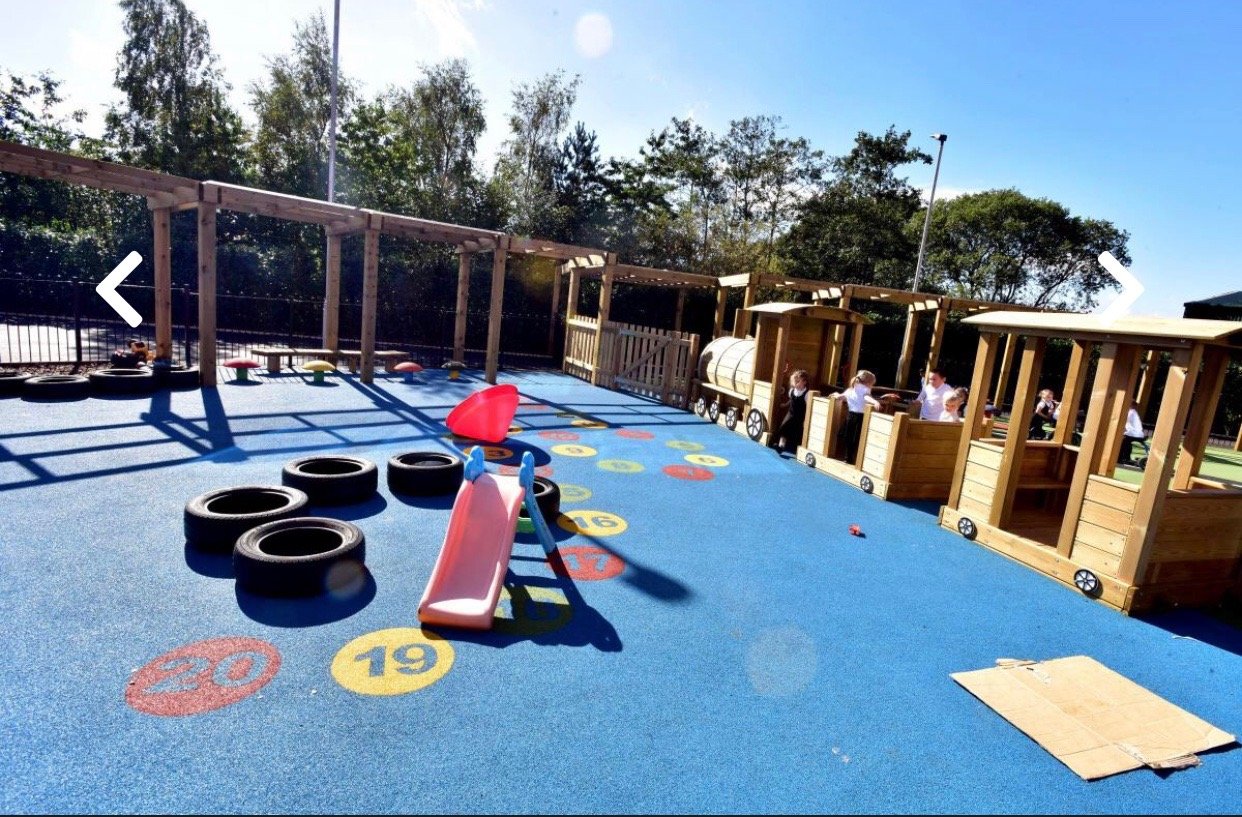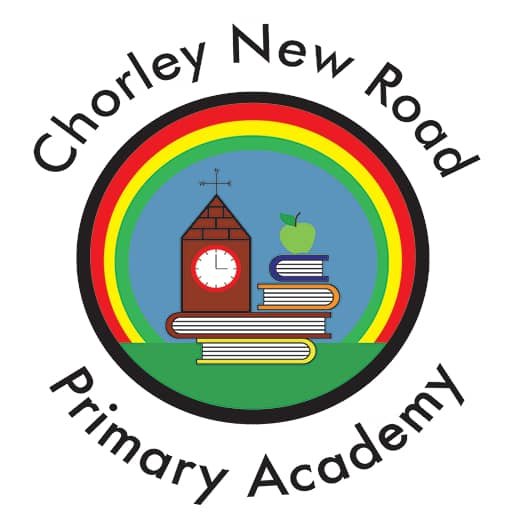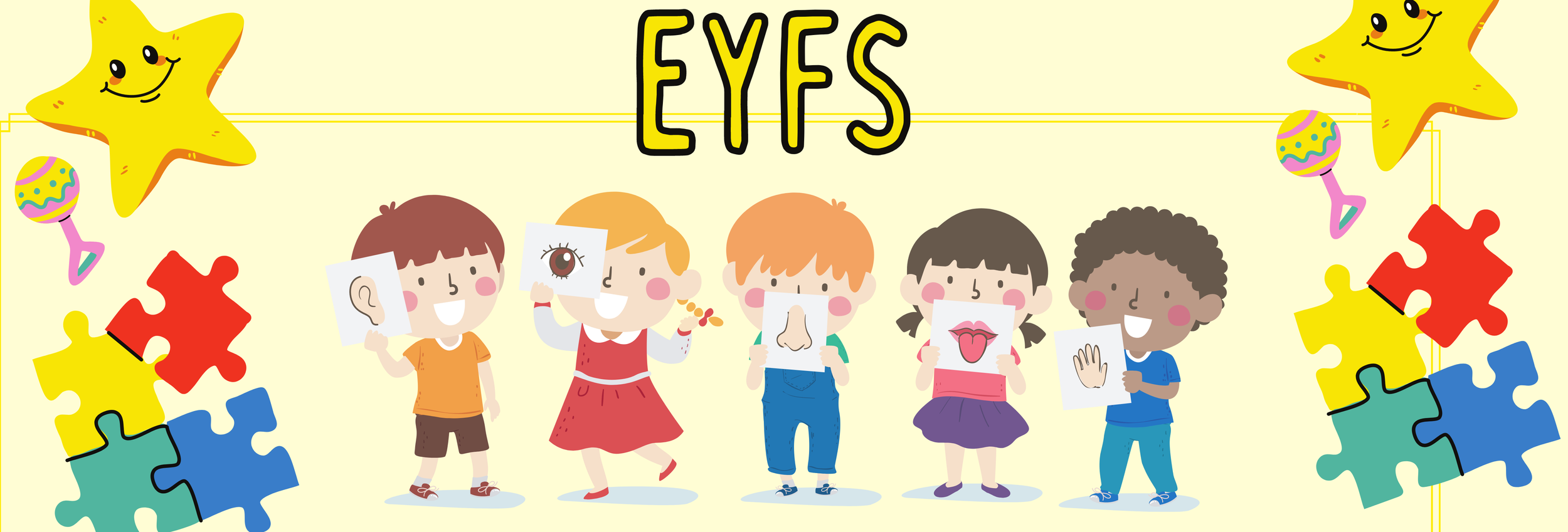
Chorley New Road Primary Academy
Challenge - Nurture - Respect
Our Intent -
At Chorley New Road Primary Academy our Early Years curriculum is designed to inspire children to use their natural curiosity and creativity to develop a positive attitude and love of learning. We cherish play and therefore create interesting spaces where children can become skilful communicators and agile, empathetic learners.
We believe that every child is unique and we promote children’s interests, providing opportunities that support them to investigate and develop skills independently whilst taking risks within our engaging and innovative learning environment.
We aim to provide an awe inspiring, broad and balanced curriculum that maximises cross-curricular links and builds strong foundations for the future.
Using a rigorous Phonics programme, we aim to ensure all our children are competent and enthusiastic readers.
Through developing relationships with our children and understanding their starting points, we strive to nurture happy, well-rounded pupils who learn new skills and acquire knowledge to provide a firm foundation for life-long learning.
How is it implemented?
In the Early Years there are Seven key features of effective practice that underpin everything we do for our children:
1. The best for every child
2. High-quality care
3. The curriculum: what we want children to learn
4. Pedagogy: helping children to learn
5. Assessment: checking what children have learnt
6. Self-regulation and executive function
7. Partnership with parents
The Characteristics of Effective Teaching and Learning help us to reflect on how each child is developing and then adapt our teaching accordingly. They provide an understanding of how children learn and how each is child is unique. These go hand in hand with the whole school approach of High Performance Learning.
Three characteristics of effective teaching and learning are:
• playing and exploring – children investigate and experience things, and ‘have a go’
• active learning – children concentrate and keep on trying if they encounter difficulties, and enjoy achievements
• creating and thinking critically – children have and develop their own ideas, make links between ideas, and develop strategies for doing things
Our curriculum is based on the seven areas of learning.
There seven areas of learning and development are divided into 2 groups:
The Prime areas:
· Communication and Language
· Personal, Social and Emotional Development
· Physical Development
The Specific Areas:
· Literacy
· Maths
· Understanding the World
· Expressive Arts and Design
All areas of learning and development are important and inter-connected.
For each area of learning there are Educational programmes which involve activities and experiences for children. There are a set of developmental statements referred to as the Development Matters for each area. Lessons, activities and experiences are planned to support children achieve these developmental statements and move to the next stage.
The children in our Early Years classes have daily Phonics lessons using the Read Write Inc scheme. In these sessions children will be taught the letters of the alphabet and the sounds they make. They will also learn how to apply these sounds when reading and writing.
A daily ‘Maths Meeting’ is delivered where children are taught a range of mathematical concepts, for example, the composition of numbers, counting systems, patterns and number bonds.
Throughout the day, children are part of teacher inputs on the carpet, adult led activities and child initiated activities. Children need opportunities to develop their own play and independent exploration and therefore we allow time for children to learn both in the inside classroom and in the outdoor learning environment.
Our classroom environment provides opportunities to apply the skills and knowledge they have been taught in a range of ways. Children have access to a range of resources and equipment as well as carefully planned activities that challenge their thinking. Through play, children develop their own ideas whilst working with others and sharing their ideas.
The outdoor area is provides for similar opportunities to learn but on a larger scale. It allows children to explore the world around them, develop their gross motor skills and investigate different concepts and ideas.
How do we measure the impact of our curriculum?
Teachers regularly monitor the progress of pupils and plan activities and lessons to ensure they are challenged and make progress in their learning journey.
Next steps in learning are used to help children make rapid progress and these are reviewed and updated each half term. Interventions are put in place for children who need additional support to make progress.
At the end of Reception we assess all children against the 17 Early Learning Goals.
Each child’s progress is shared with parents and regular updates are shared via an online app called Tapestry.

